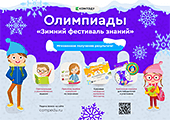Школа –гимназия 22
Theme: “Teenage Pastimes and Hobbies”
Учитель: Карпач Т.А.
Астана
Form: 8 D
The theme of the lesson: “Young people`s pastimes and hobbies”
The aims of the lesson:
To revise Conditionals I, to introduce pupils with Conditionals II.
To improve lexical knowledge of the theme using words, phrases in pupils` answers.
To develop pupils` abilities in oral speech through different kinds of work: conversation, monologue, dialogue.
To develop pupils` speaking, writing, reading skills. To improve pupils` pronunciation.
Type of the lesson:presentation of new lexical and grammar theme
Equipment:interactive board, grammar charts.
Plan of the lesson.
Organization moment: - Greeting, introductory words about the aims of the lesson.
Introduction with new proverbs to revise Passive Voice.
Discussion of teenage pastimes.
Work with the text
Presentation of grammar theme Conditionals I and II
Practice of grammar exercises.
Hometask
Conclusion
Organization moment.
Good afternoon children, I am glad to see you. At the beginning of our lesson I want to propose you some proverbs which help you to revise the grammar theme “Passive Voice”. Look at the blackboard. There are 4 proverbs on it. Before reading these proverbs let`s introduce with some new words. Let`s learn them.
New words:
| Heaven | [hevn] | небеса |
| A wound | [vu:nd] | рана |
| To cure | [kju:] | заживать |
| vain | [vein] | напрасно |
| To get rid of |
| избавиться |
Proverbs:
1. Marriages are made in heaven.
2. A bad wound is cured, not a bad name.
3. He who is born a fool is never cured.
4. Money spent on brain is never spent in vain.
5. Life is made of little things.
- Find the verb in Passive Voice in each proverb.
- Let`s try to guess what is the meaning of each proverb.
You should match these proverbs with its meanings.
| 1. Marriages are made in heaven. 2. A bad wound is cured, not a bad name. 3. He who is born a fool is never cured. 4. Money spent on brain Isnever spent in vain. 5. Life is made of little things.
| 1. The longest road consists of little steps. 2. It is very important to get good education. 3. It is easy to get rid of a disease, but it`s impossible to get rid of ill fame. 4. When people marry, the God looks at them. 5. Born a fool dies a fool
|
II Discussion of teenage pastimes.
Discuss in groups how you like to spend your free time and where you like to spent it.
-Today our lesson is unusual. I have divided you into 2 groups.
III Conversation.
Make up your dialogues about your pastimes and Hobbies.
IV Work with the text
Let`s see what some teenagers say about their free time.
(Reading the text)
V Revision of using Real Conditional Sentences.
If he takes this book he will do his homework.
VI Practice.Doing grammar exercises for practicing Real Conditional sentences.
Ex5 p72
Ex 1 p76
Golitsynskiy Grammar book
VIIPresentation of the grammar theme: Unreal Conditional Sentences.
If he took that book he would do his homework well.
VIII Practice.Doing grammar exercises for practicing Unreal Conditional sentences.
Ex4 p78
Golitsynskiy Grammar book
IX giving hometask
X Conclusion
I am quite satisfied with your work today. And I give you excellent and good marks. Thank you. The lesson is over.
Самоанализ урока
Уроканглийскогоязыкапотеме “Young people`s pastimes and hobbies”
Цели урока:
- повторить употребление страдательного залога
- закрепить знания учащихся об образовании и употреблении Условных предложении Iи II типа.
- развивать монологическую, диалогическую речь по данной теме.
- показать значимость межпредметных связей, повышающих мотивацию учащихся при изучении данной темы.
- научить самостоятельно, подбирать и представлять перед аудиторией приготовленную информацию.
Тип урока: знакомство с новой лексической и грамматической темой и повторение пройденного материала
Тема урока связана с предыдущими уроками и опирается на знания учащихся грамматического материала и умение употреблять страдательный залог и Условных предложении I типа.
Главной задачей урока являлось формирование коммуникативной деятельности учащихся.
Урок учитывал все программные требования (доступность изложения, познавательность, творчество, интерес учащихся).
На уроке использовались групповые и индивидуальные формы работы, наглядные (слайды) и словесные методы обучения.
В течение урока учащиеся показали активную работу, умение подбирать самостоятельно необходимый материал, знания полученные на предыдущих уроках.
Структура урока соответствовала методу группового обучения и способствовала восприятию темы, развитию интереса, к изучению английского языка.
Цели и задачи урока достигнуты.





